-
-
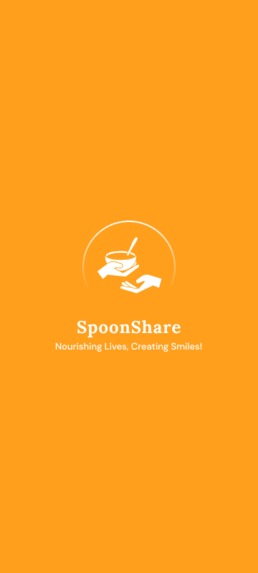
App-Onboarding-Screen
-
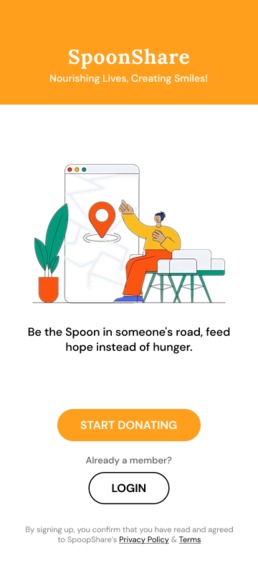
Onboarding-Screen
-
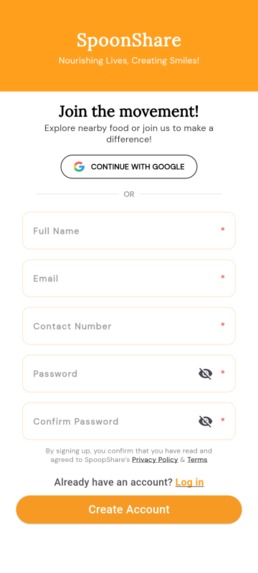
Sign-Up-Page
-
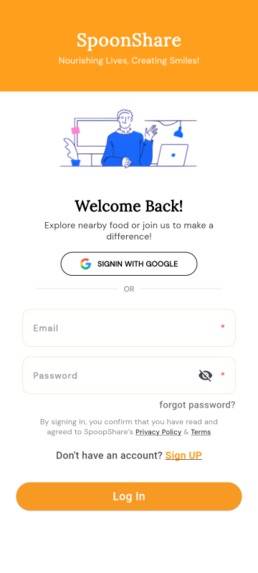
Login-Page
-
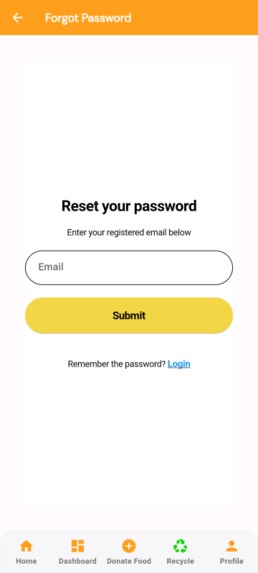
Reset-Password-Page
-
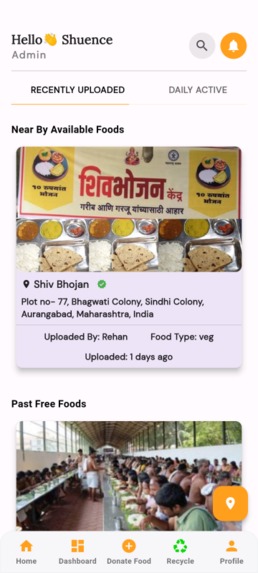
Home-Screen
-
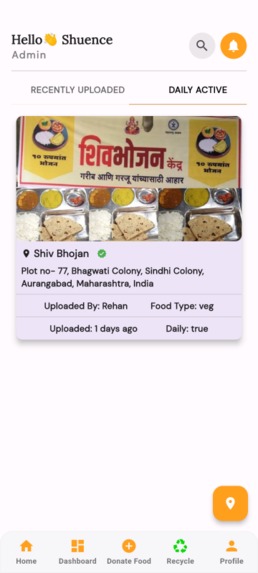
Home-Screen1
-
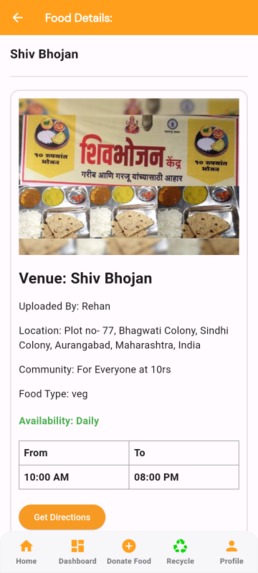
Detailed-Free-Food-Camp-Screen
-
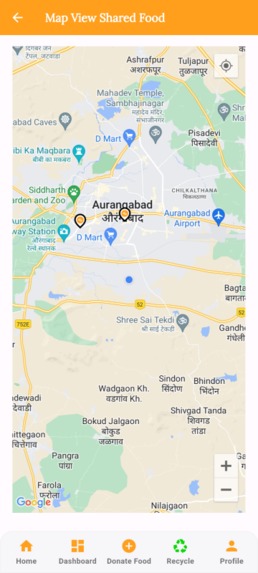
Map-Integration-Screen
-
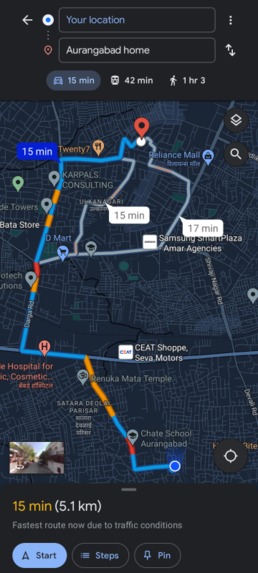
Location-Tracking-Page
-
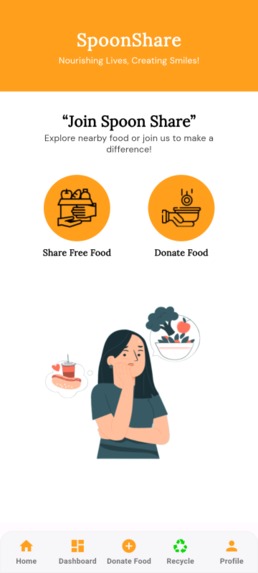
Donate-NGO-Screen
-
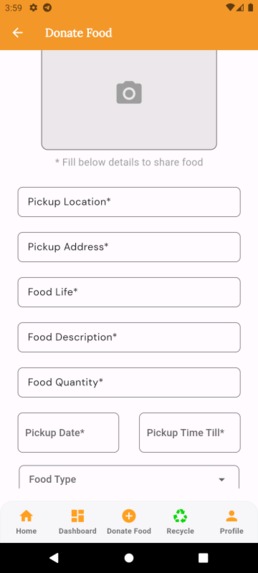
Share-Free-Food-Screen
-
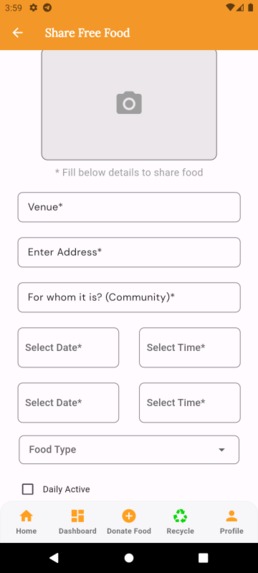
Donate-Free-Food-Screen
-
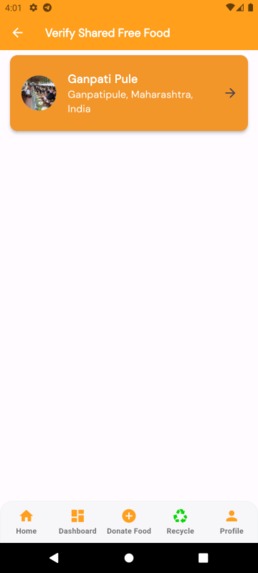
Volunteer-Management-Screen
-

Share-Free-Food-Screen1
-
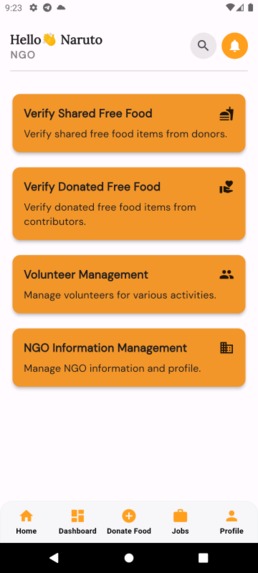
Admin-Screen
-
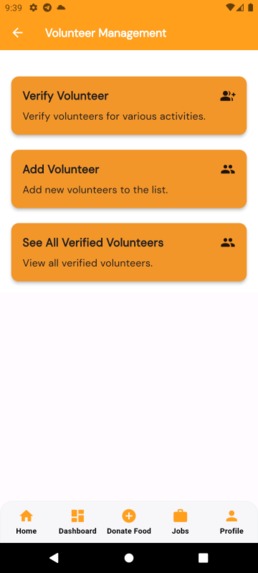
Volunteer-Management-Screen
-
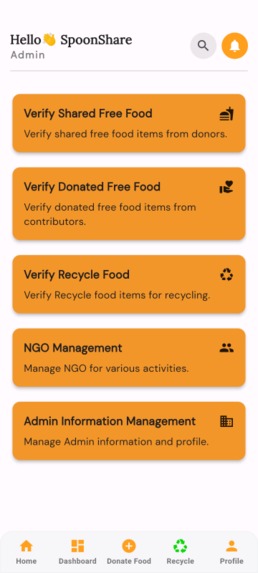
Admin-Screen1
-
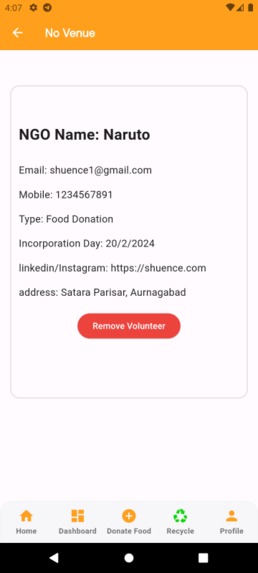
NGO-Screen
-
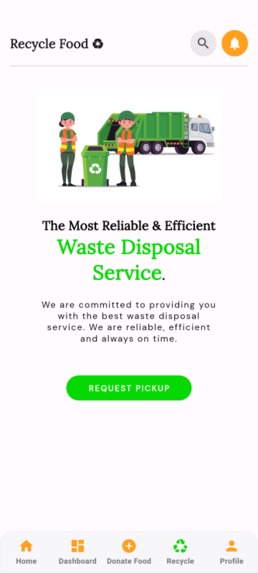
Recycle-Food-Screen
-
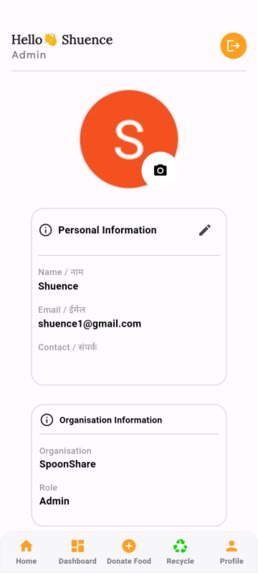
User-Profile-Screen
Inspiration
The inspiration behind SpoonShare came from a deep concern for the significant food wastage observed in various establishments like hotels, events, and public feast places. Witnessing this wastage firsthand and understanding the dire situation of hunger faced by millions globally sparked the idea to create a platform that could bridge the gap between surplus food and those in need.
What it does
SpoonShare is an Android app that serves as a centralized platform for facilitating the donation of surplus food to individuals and NGOs working to combat food insecurity.
- The app allows surplus food donors to easily list their items, while NGOs and individuals can find nearby free food options.
- Additionally, SpoonShare provides real-time information about free food availability and essential services nearby.
How we built it
We built SpoonShare using Flutter for the frontend, ensuring a seamless user experience across Android, iOS, and web platforms.
- Firebase served as our backend, providing features such as real-time database synchronization, authentication, and storage.
- Integrating Google Maps API enhanced the app's functionality by enabling address auto-complete and dynamic map displays.
- Google Cloud: Offers scalable cloud services and machine learning.
- Android Studio: Official IDE for Android development.
- Web (HTML, CSS, JS): Standard web technologies for UI.
- Google Maps: Web mapping service for interactive maps.
Challenges we ran into
One of the main challenges we faced was integrating address auto-complete using the Google Maps API within the Flutter framework. Overcoming this challenge required creative problem-solving and implementing alternative solutions to ensure smooth functionality.
Accomplishments that we're proud of
We're proud of several accomplishments with SpoonShare, including:
- Creating a user-friendly interface that simplifies surplus food donation and access for those in need.
- Establishing partnerships with NGOs, biofertilizer plants, and biogas facilities to ensure sustainable utilization of surplus food resources.
- Providing real-time updates and information about nearby free food options and essential services.
- Engaging the community in food donation drives, volunteering activities, and awareness campaigns.
What we learned
Through the development and implementation of SpoonShare, we learned valuable lessons about:
- Addressing food wastage and food insecurity through technology-driven solutions.
- Collaborating with stakeholders such as NGOs and businesses to maximize impact and reach.
- Overcoming technical challenges and optimizing app performance for a seamless user experience.
What's next for SpoonShare
Looking ahead, we have several plans for SpoonShare's future:
- Expanding job opportunities for marginalized communities through partnerships with local businesses.
- Providing multilingual support and information on education and healthcare services.
- Integrating features for government schemes and initiatives to further support users in need.
- Scaling the platform to reach a larger audience while maintaining performance and user satisfaction.
Overall, SpoonShare aims to continue making a positive impact by addressing food insecurity, promoting sustainability, and fostering community collaboration.
Key Features:
- Surplus Food Map: Visualize surplus food locations on an interactive map, facilitating easy navigation and access to available resources within a 30km radius.
- User-Friendly Interface: Intuitive design ensures a seamless experience for donors, recipients, volunteers, and NGOs, promoting accessibility and usability for all users.
- Real-Time Updates: Stay informed with instant notifications about surplus food availability, ensuring timely distribution and reducing food wastage.
- Volunteer Matching: Connect volunteers with surplus food distribution opportunities tailored to their preferences and availability, fostering community involvement and support.
- Quality and Safety Standards Verification: Implement rigorous guidelines to verify the quality and safety of donated food, ensuring compliance with standards and regulations.
- Collaboration with Local Governments and NGOs: Forge partnerships with local authorities and non-governmental organizations (NGOs) to streamline operations, leverage resources, and adhere to regulatory requirements effectively.
United Nations' Sustainable Development Goals
We chose the following UN SDGs and targets for Spoon Share as they directly align with our mission and objectives:
SDG 1 - No Poverty SDG 2 - Zero Hunger SDG 3 - Good Health and Wellbeing SDG 6 - Clean Water and Sanitation SDG 10 - Reduced Inequalities SDG 11 - Sustainable Cities and Communities SDG 12 - Responsible Consumption and Production SDG 17 - Partnerships for the Goals These goals and targets inspired us to address food wastage, hunger, inequalities, and promote sustainable consumption and production practices through Spoon Share.
Built With
- andriod-studio
- figma
- firebase
- firebase-cloud-function
- flutter
- google-analytics
- google-cloud
- google-maps
- javascript
- sql

Log in or sign up for Devpost to join the conversation.